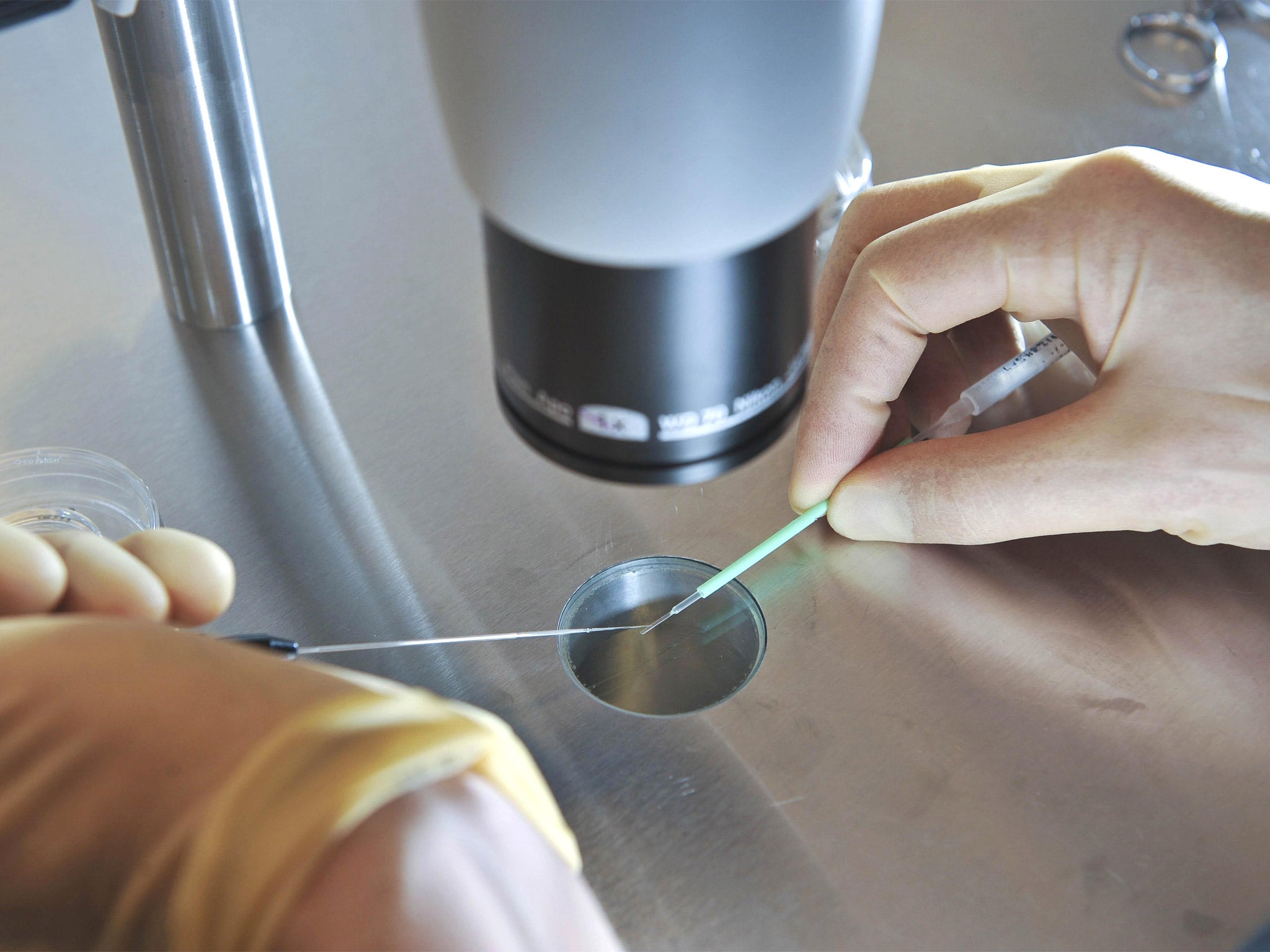IVF babies ‘twice as likely to suffer serious birth problems’, research suggests
But experts question the science behind major Australian study

Babies born through IVF treatment are twice as likely to suffer serious birth problems as those conceived naturally, a major new Australian study has claimed.
Scientists carried out analysis on data spanning 17 years, and concluded that both traditional IVF and direct injection of sperm into eggs have increased risks of complications.
The study looked at the risk of stillbirth, low birth weight, premature birth and infant death from more than 300,000 births in South Australia, of which 4,300 were the result of assisted reproduction.
Yet fertility experts in the UK have slammed their Australian counterparts, calling the study “bad science” and suggesting that the increased risks relate more directly to couples with a history of infertility – not to the use of IVF treatments.
Study leader Professor Michael Davies, from the University of Adelaide's Robinson Institute, said: “Compared with spontaneous conceptions in couples with no record of infertility, singleton babies from assisted conception were almost twice as likely to be stillborn, more than twice as likely to be pre-term, almost three times as likely to have very low birth weight, and twice as likely to die within the first 28 days of birth.”
Oxford University fertility expert Dr Dagan Wells said: “Although this study suggests that some adverse outcomes are higher in pregnancies conceived using IVF, it is important to understand that the overall risk of these problems remains low.”
Dr Wells said a more significant conclusion to take from the study was the higher risk faced by mothers with a history of infertility who did not receive IVF treatment.
Professor Davies said women in this group who did eventually conceive “gave birth to babies who were nine times more likely to have very low birth weight, seven times more likely to be very pre-term, and almost seven times more likely to die within the first 28 days of birth”.
Dr Wells said: “This suggests that the problems seen for babies born after IVF may be related to the patient's infertility rather than the treatment itself. In fact, for couples with reduced fertility, IVF seemed to lessen these risks compared to natural conception.”
Speaking about the study in general, he added: “I doubt these findings will deter many infertile couples from using IVF.”
Sheena Lewis, professor of reproductive medicine at Queen's University, Belfast, agreed. She said: “We have known for some time that couples conceiving spontaneously after a period of infertility have poorer outcomes. This indicates that these problems may come from the disease rather than the fertility treatment.
”Also a very positive finding in this study is that the use of frozen embryos eliminates all the adverse outcomes following Icsi. Freezing embryos is a routine procedure in fertility clinics and may be a useful option for those couples concerned about these findings.“
Alison Murdoch, Professor of Reproductive Medicine, Newcastle University, said: “This is bad science. They have taken a large set of data and undertaken multiple analyses.
“The data need much further analysis before any conclusions could be reached that would justify new headlines or new advice for patients.”
The research was published in the online journal Public Library of Science ONE.
Join our commenting forum
Join thought-provoking conversations, follow other Independent readers and see their replies
Comments
Bookmark popover
Removed from bookmarks